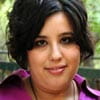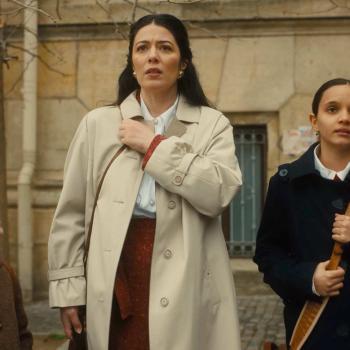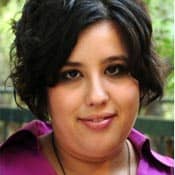 I once heard a question asked in the comments section of a progressive blog: "How much do you have to disagree with your religion before you stop being an adherent of that religion?"
I once heard a question asked in the comments section of a progressive blog: "How much do you have to disagree with your religion before you stop being an adherent of that religion?"
 A person can disagree with all of it, with every letter in every book, and still consider herself an adherent, albeit one in desperate need of new books. The questioner's inquiry into doctrinal purity and departure betrays an understanding of religion as existing separate from its followers. If I disagree with only four commandments, I am still Jewish; but, if I disagree with six commandments, has the pendulum swung and I am no longer Jewish? Religion, as I have known it, is constantly in the process of its own revitalization by the community; this has been equally true regardless of where I have found myself in the spectrum of practice. I look not just to the books, but also to the communities to seek an understanding of religious practice and faith.
A person can disagree with all of it, with every letter in every book, and still consider herself an adherent, albeit one in desperate need of new books. The questioner's inquiry into doctrinal purity and departure betrays an understanding of religion as existing separate from its followers. If I disagree with only four commandments, I am still Jewish; but, if I disagree with six commandments, has the pendulum swung and I am no longer Jewish? Religion, as I have known it, is constantly in the process of its own revitalization by the community; this has been equally true regardless of where I have found myself in the spectrum of practice. I look not just to the books, but also to the communities to seek an understanding of religious practice and faith.
In Washington, D.C., there is an extraordinary diversity of religious communities. People come here from all over the country, often to work for the federal government, and transplant versions of their communities to their new home. This series of articles will cover the communities we are trying to build in our nation's capital, across the religious spectrum, alongside musing on religious diversity, identity, and faith . . . beginning with a bit of my own.
While I am not involved in organizing Tikkun Leil Shabbat ("TLS"), a "welcoming, restful, songful community," I attend their services semi-regularly. The services are long, going from 6:45 p.m. till after 8:30 p.m. I come in sometime around 7:20 p.m., the greeter hands out the worn purple prayer books, turned to the right page. People slowly trickle in throughout the service.
The church basement where TLS meets is barren; scuffed white linoleum and folding chairs surround the prayer leader. In the bathroom, one of the sinks is missing from the wall. The potluck tables are already setup and the stragglers drop their wares on the appropriate table; the options are vegetarian and vegetarian cooked in a kosher certified kitchen. Some prayers are sung by the prayer leader, some said in silence, the majority are sung in unison. People scan the faces in the crowd out of the corner of their eyes, exchanging smiles with friends and acquaintances. I watch their faces; some people know the words and they are belting them out, others are humming, with their purple prayer books turned to the wrong page. There are riveted eyes and bored eyes and even napping eyes.
Two divergent takes on the singing, which is the hallmark of a TLS service:
I'm a little allergic to spirituality, but I appreciate the alternative to the soullessness of so many other Jewish spaces. ~ Dina
My favorite aspect of TLS is its musicality—it scared the crap out of me when I first heard it: so many people singing all at once, it was crazy. ~ Jack
They come to sing and they come not to sing.
Some weeks there are instruments—guitars and an occasional tambourine—other weeks it's all a cappella. Rachel, who grew up in the conservative movement, where instruments are generally not used, reflected on attending TLS:
When I first began attending TLS, I was uncomfortable with the idea of using musical instruments in Shabbat services. However, I felt that TLS did well at integrating the instruments and making them a supplement to the service rather than a concert atmosphere.
Rachel sees her changing views on instruments as consistent with her past beliefs, because her objections to instruments (and the "concert atmosphere" they generate) did not actually materialize in the TLS service. She is expanding the parameters of her practice to include that occasional tambourine.
TLS is a program of Jews United for Justice, a D.C.-based social justice organization that runs programs such as the Passover "Labor Seder," where a retelling of the Passover narrative of Jewish exodus from slavery becomes a reminder "that it is our duty to side with the oppressed, and not with the Pharaohs in our community." Services are attended largely by adults between 25-40, coming from varying Jewish practice levels, self-described as anywhere from "cultural" to "within spectrum of religious observance" to "Post-Orthodox," to "I inspect my greens for bugs and my eggs for blood. I bless G-d before and usually after I eat. I wash my hands regularly. I tie my shoes in the traditionally prescribed order."





